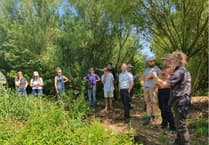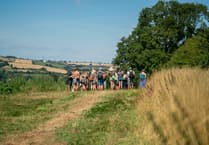THE Great Big Bus Survey report is now live, writes Jackie Head, Chew Valley Sustainable Transport Group.
With responses from 982 people and a demographic range that closely matches the 2021 Census, it truly reflects what local people want. It is a detailed deep dive into travel habits in the Chew Valley area and was also an opportunity to collect feedback on the WESTlocal X91 and 99 services, funded by the West of England Combined Authority.
It's a long read but you can jump from the contents page to different sections by clicking on headings, or just read the executive summary. Don’t miss out on flicking through to see the free text comments we captured from the survey: they are rich testament to the value of these local buses. Here are just a few:
“These two services are excellent and are vital for the chew valley”
“My life can be quite housebound so it is an absolute joy to meet others and have a catch up. It is definitely great for my health and wellbeing in a way that car travel really isn't.”
“We have nothing but praise for this service and the drivers. It provides a great opportunity to have a night out without having to drive or pay the vastly more expensive taxi fare.”
“Without X91 and 99, young people and those who don't drive are stuck in the village.”
“Being able to do something positive to reduce pollution stops me being overwhelmed by the state of our environment and that is also good for my mental health and wellbeing.”
We will be putting paper copies of the report in local hubs so please do let us know if you would like one in your community.
Meanwhile, from the data collected here are our key recommendations:
MCA needs to:
1. Continue to fund the X91 and 99 routes to enable them to build passenger numbers
2. Plan towards increasing the frequency of both routes if significant modal shift is to be achieved
3. Build on the success of the X91 by planning for similar fast and frequent routes to Keynsham and Bath
4. Tap into the leisure and tourism potential of having fast and frequent services to Bath and Bristol
5. Monitor the carbon savings of rural buses and use this data to seek further funding
6. Assess the potential savings attached to offering rural buses in terms of reducing social isolation in rural areas
7. Properly support community engagement in order to build positive bus using habits and foster bus journey planning confidence.
8. Invest in public charging points in villages, explore the potential for electric car share and facilitate those on lower incomes to transition to electric car and bike use.
To find out more information about the work of the Chew Valley Sustainable Transport Group email [email protected]
To view the Great Big Bus Survey report in full visit tinyurl.com/GreatBigBusSurvey2025





Comments
This article has no comments yet. Be the first to leave a comment.